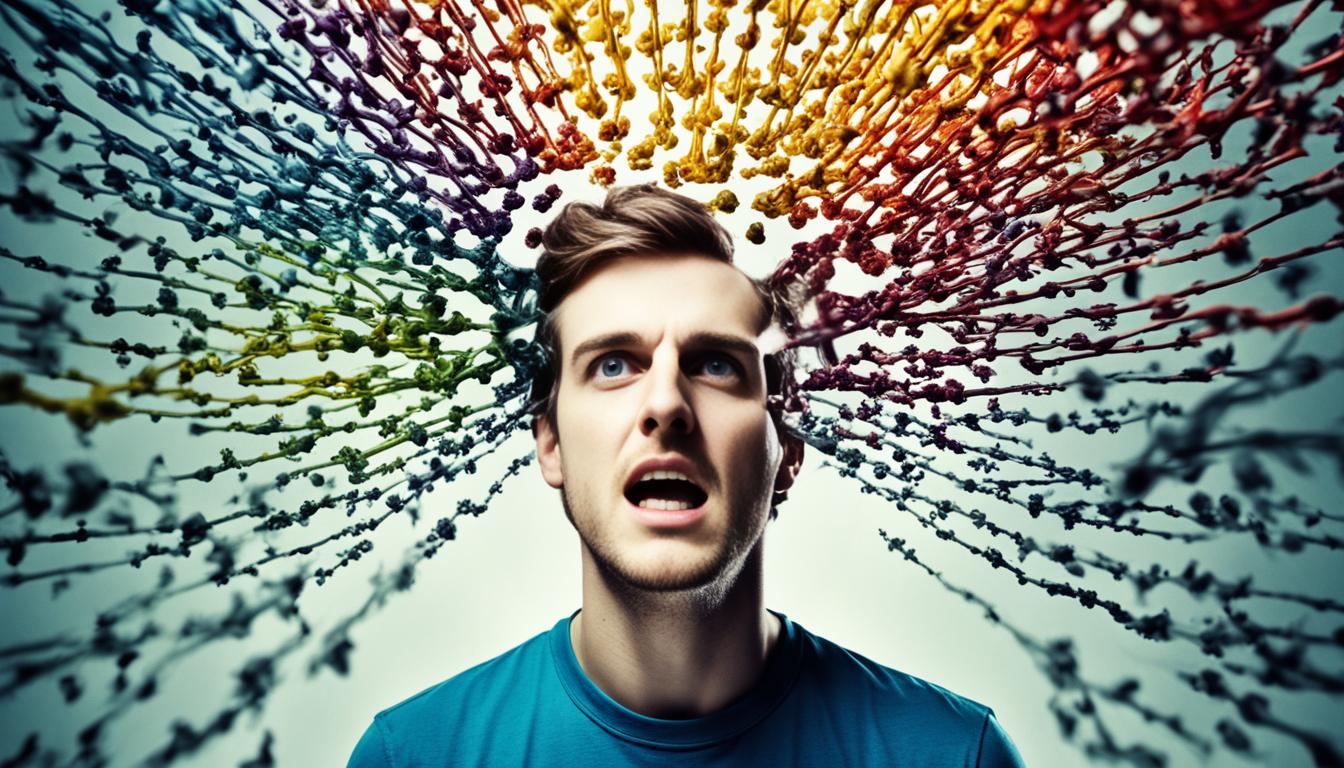Schizophrenia is a serious brain disorder that affects teenagers. It leads to long-lasting mental health problems and serious symptoms. Over 50% of teens with this disorder have to deal with these difficulties.
At least 20% also face disability because of it. Schizophrenia not only hurts mental health but also limits job opportunities and decreases how long people live. In England, it costs about £11.8 billion every year.
The causes and ways schizophrenia affects teens are not fully known. But, new studies in gene research, disease patterns, and brain science are offering hope. Stem cell treatment is one area showing potential to help improve outcomes and make life better.
It’s crucial to understand this complicated condition and find the best ways to help teens with schizophrenia. We’ll look at the signs, reasons, how it’s diagnosed, and how stem cell therapy might play a part in treatment.
Key Takeaways:
- Schizophrenia is a serious brain disorder that significantly affects the lives of teenagers.
- It causes long-term mental health issues and serious symptoms.
- The disorder has broad effects, including high jobless rates and shorter life spans.
- New research in genes, disease patterns, and brain science offers hope for better treatments.
- Stem cell therapy might be a promising way to treat teenage schizophrenia.
Understanding Adolescent Schizophrenia: Symptoms and Diagnosis
Adolescent schizophrenia is a mental disorder found in teens. Knowing its early signs helps with timely care. This part looks at how it shows and how doctors diagnose it in youth.
Common Symptoms of Adolescent Schizophrenia
It shows with many different signs. These include positive, negative, and thinking issues. Positive symptoms can be imagining things or believing things not true. Negative signs are not wanting to do things, not enjoying life, and not showing emotions. Thoughts, memory, and making choices can also be hard for them.
Finding these signs early is key for better outcomes. Changes can be sudden mood swings, getting upset easily, or being restless. Also, avoiding people, doing worse in school, and trouble in relationships can signal something wrong.
Diagnosing Adolescent Schizophrenia
Diagnosing this is tough without set tests. Doctors look at the person’s history and behavior to make a diagnosis. They check how long the symptoms have been there and how they impact life.
It’s also important to rule out other similar conditions like severe mood disorders. Only a trained professional can accurately diagnose this disease in teens.
Causes and Risk Factors for Adolescent Schizophrenia
It’s important to understand the causes and risks of schizophrenia in teens. This helps in managing and supporting them. Genetic and environmental factors both play a big part in its development.
Recent studies have found specific DNA variations linked to schizophrenia. This shows the disorder is influenced by many genes. So, treating teens with
schizophrenia needs to consider all these aspects.
Things like infections before birth, hard life events, and lack of vitamin D can raise the risk of getting schizophrenia. This underlines the need for early care and management. It helps lessen these risks and supports their mental well-being.
For teens with schizophrenia, having the right adolescent mental health resources and supports is crucial. A good support network, therapy, and educational support all help. They can make it easier for teens to deal with their condition.
Early intervention and support from mental health resources can make a significant difference in the lives of teenagers affected by schizophrenia.
Key risk factors for adolescent schizophrenia:
- Genetic factors
- Prenatal infections
- Adverse life events
- Low vitamin D levels
Effective approaches to managing schizophrenia in teens:
- Early intervention
- Regular therapy sessions
- Medication management
- Social support networks
- Education and awareness
By dealing with both genetic and environmental causes of schizophrenia, and by giving the right support, we can help teens. This will improve their life and well-being significantly.
The Promise of Stem Cell Therapy in Treating Adolescent Schizophrenia
Stem cell therapy is showing great potential in treating teenage schizophrenia. It uses stem cells to fix or change damaged brain cells. This could better symptoms and the brain’s overall working.
It’s new but early studies are positive. They show stem cell therapy might be a fresh, efficient way to help teens with schizophrenia. By focusing on the brain’s core issues, this treatment might really improve their lives.
Experts need to study more to be sure about stem cell therapy for teenage schizophrenia. Even so, the initial signs are good. Advancing in stem cell research gives hope for new, working treatments where the old ways don’t do enough.

